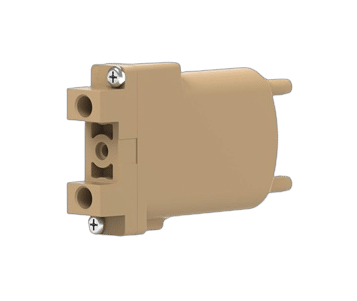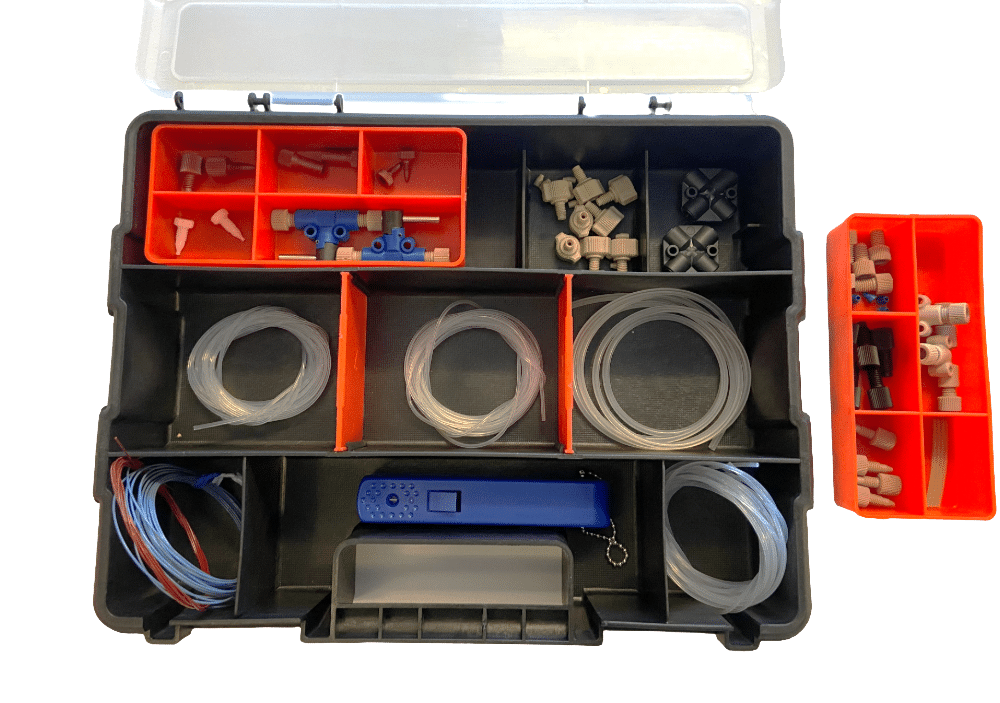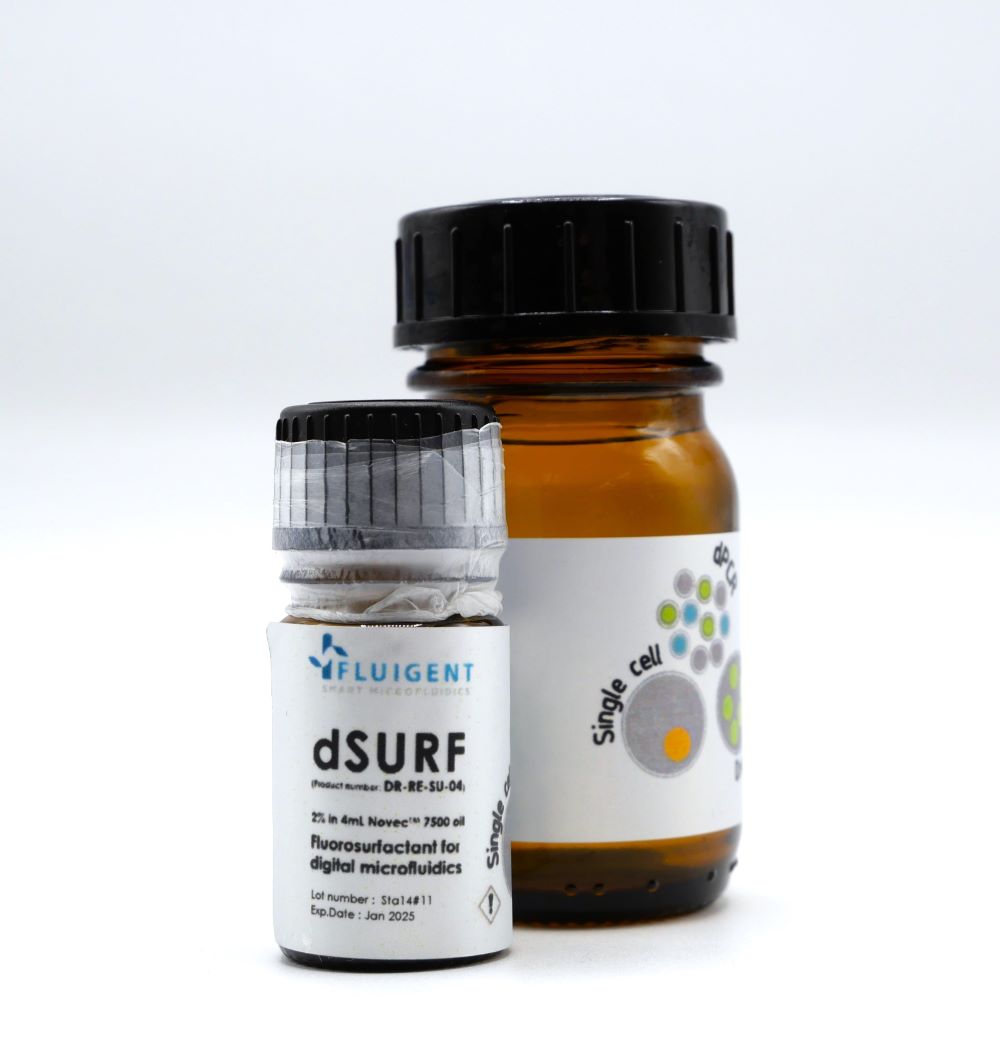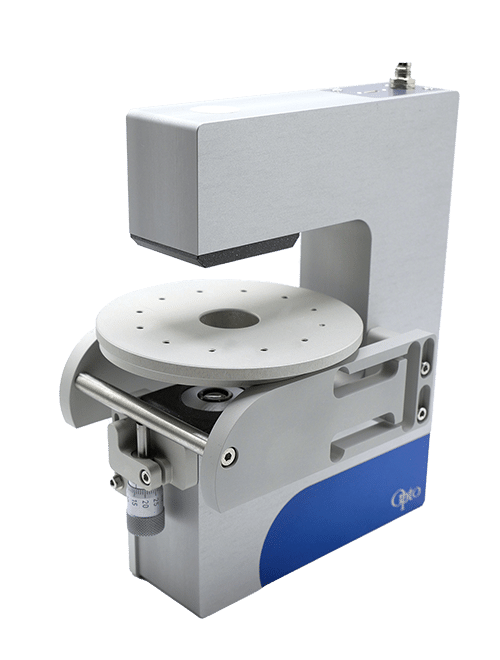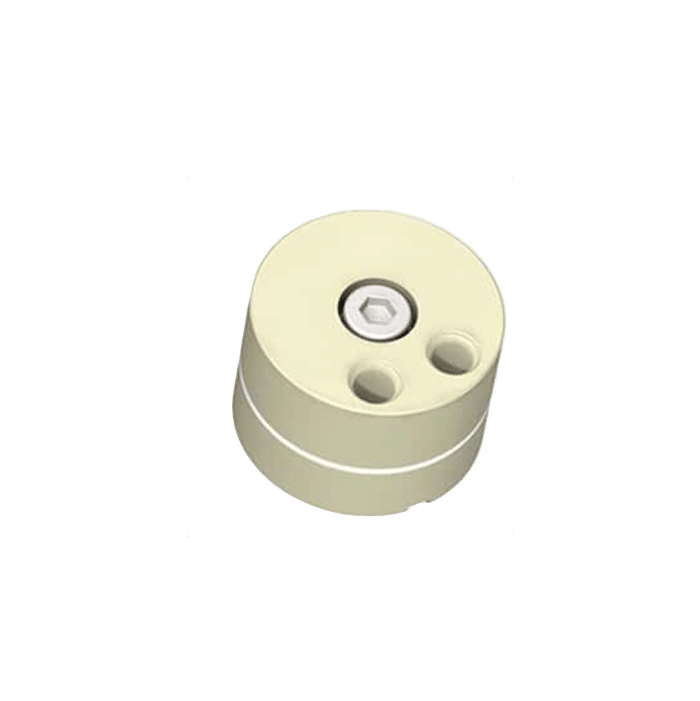Microfluidic Accessories
Our goal is to provide you with all the essential equipment required for a seamless and immediate start with our microfluidic products. Fluigent selects and develops a range of standalone microfluidic accessories compatible with our research product range in order to optimize your system. Benefit from additional features and capabilities such as hands-free operations, bubble trapping and recording optics.
Main benefits
- Standalone
- Compatibility
- Additional features
- Extend capabilities
